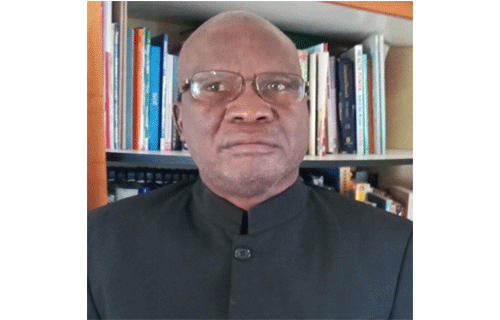Google sources describe constructive criticism as feedback that provides specific and actionable suggestions, which give clear advice and specific recommendations on how to make positive improvements. In certain circumstances, criticism may be the cause of conflict, which is the existence of differences of opinions among people in an organisation. On the other hand, conflict is constructive when people challenge the status quo,
or debate how better to do their job; But when conflict develops an element of hostility and people start challenging each other, then it becomes destructive, hence the need for constructive criticism. Namibia as a multicultural society with different approaches to issues of
existence is guided by the Constitution, which is the supreme law of the land.
Because of the multiple cultures, it is possible that people may not agree on many national and critical issues and points of opinion. Sentiments raised by others may be found to be derogatory if not presented in a language which is
polite and suited to the situation.
And because of that, whatever is being voiced out should be done within the confines of the law. As Article 8 (1) states, “the dignity of all persons shall be inviolable”, but contrary to the Act, in
most cases, the personality and human nature of people are violated.
Nevertheless, criticism is normal, as human beings cannot think alike, but it should be constructive for the sake of any healthy relationship. Above that, criticism has been practised by many people throughout the centuries, especially by great thinkers like Socrates and many African sages.
It is constructive criticism which has brought the current state of philosophy and other fields of study, as it is known today. If anything, constructive criticism should play a key role in the world of academia and wisdom havens as the
reas where information is being
researched and manufactured. In
addition, literature reviews and oral houses should be used as tools to compare previous studies made by other academicians and sages.
As academicians rely on constructive criticism for sound research, politicians are being criticised daily for failing to carry out the mandate of the people. Of course, in a democracy, that is the norm as the electorate seeks answers to their plight and concerns. Unfortunately, many people do not take criticism
lightly, and tend to fire back at the
accuser. But sometimes there might be some elements of misunderstanding as far as language usage is concerned, as one word in one language might mean something else. Whereas it is easy to
point fingers at other people and criticise them, it might equally be fair to come up with a solution to the problem, as mere criticism may generate serious conflicts. It is equally important to examine constructive criticism from the nature and angle of prescriptive philosophy, which seeks to establish standards for assessing values, judging conduct and appraising anything seen to be valuable. It examines what is meant by good and bad, right and wrong, beautiful and ugly.
it asks whether these
qualities are inheherent in things themselves or whether they are
projections of our own minds. The prescriptive philosopher seeks to discover and recommend principles for deciding what actions and qualities are most worthwhil,e and why they should be so. Communities around the globe may differ in explaining what is bad and good, but the bottom line is that every community has a way of doing that, according to their socio-economic, historiography, culture, traditions and values. It is here where constructive criticism should be applied when dealing with people from different backgrounds. Although bad and good might be relative in some respects, there should be a common ground where both sides of the argument should cross the line. When engaged in constructive criticism, it is equally necessary to use and comprehend the critical function of philosophy, which employs the questioning attitude of the ancient Greek philosophers, like Socrates and other African sages. The method encourages honesty of thought, and seeks to protect man from fanaticism, hypocrisy, dogmaticism, sloganeering and ideologies. It aims at liberating man from narrow-mindedness. The method is meant to be constructive, and seeks to evaluate and judge things in the light of clear and distinct ideas. But this could be cumbersome, as some people may portray the phenomenon in a different light, and miss the point of constructive criticism. The rational function calls for the need for logical and systematic thinking, although the basis of this method is logic, which is the study of reasoning. Unfortunately, many people are not at par in terms of reasoning, and as a result may possess different aspects of understanding, which might enable them to criticise constructively. The phenomenological function stresses
direct ordinary experience to enable human beings to know the world around them. Emphasis is the human experience of pain, joy, fear and frustration, which may vary from situation to situation. Although we might have a common understanding of what education and experience mean, they may have
different meanings to specific
individuals. The speculative function looks at the pressing problems of daily life, and attempts to find coherence and meaning in the whole realm of thought and experience. According to this
method, man speculates the causes of things in life and tries to explain them by using human reason. In all these situations, different people may possess alternate views and tend to criticise
others, but this should be done in a constitutional and rational manner.
*Professor Makala Lilemba is an academician, author, diplomat, motivational leader, researcher and scholar.


